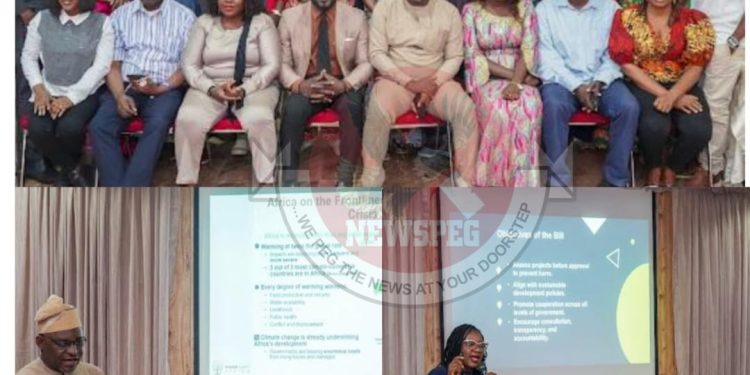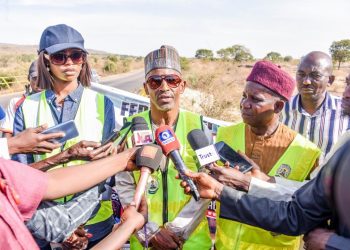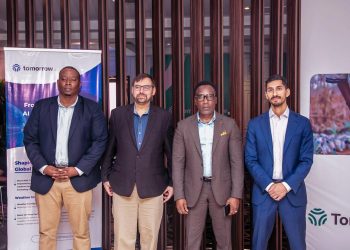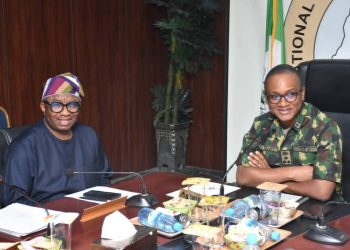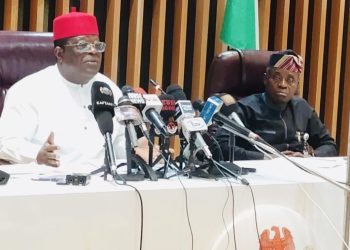By Nkechi Eze
Nigeria stands at a crossroads where its development choices could either safeguard the lives of millions or deepen existing crises of hunger, flooding, and displacement. As climate change tightens its grip on Africa, civil society organisations are sounding the alarm, warning that Nigeria cannot continue to prioritise contracts, loans, and political interests over the rights, health, and livelihoods of its citizens. Instead, they say, the nation must urgently adopt stronger safeguards for communities and the environment to protect its future.
This call was made at a media workshop on climate adaptation in Abuja, where the Executive Director of the Global Initiative for Food Security and Ecosystem Preservation (GIFSEP), Dr. David Terungwa, and the Programme Director of Gee Foundation for Social Justice and Development, Gloria Agema, challenged Nigeria’s development model and pushed for the speedy passage of the proposed Social and Health Impact Assessment Bill.
Dr. Terungwa warned that climate change is no longer a distant threat but a daily reality destroying lives and livelihoods across Africa. He highlighted how recurrent floods, shorter dry spells, and unpredictable rainfall patterns are disrupting agriculture, driving food inflation, and leaving millions vulnerable. “We need food to live, and with climate change destroying our farmlands and threatening food security, adaptation is a necessity, not a choice,” he said.
According to him, farmers across the continent are already battling crop failures that directly translate into hunger and economic instability. “Every day we delay adaptation, we are jeopardizing lives and livelihoods,” he added.
Dr. Terungwa further criticised the imbalance in global climate finance, noting that Africa has received only $11 billion for adaptation since 2021 which is far below the $53 billion needed annually. He cautioned against continued dependence on debt, insisting that “loans are not the answer anymore, debt-based solutions only compound our problems as floods and disasters often destroy infrastructure financed with borrowed money, yet our people are still forced to repay those debts. What we need in Africa are grants, debt cancellations, and direct support to communities to survive and adapt.” He stressed.
Adding her voice, Gloria Agema of the Gee Foundation said Nigeria’s development approach often sidelines the very people it is meant to serve. She pointed to the culture of wasteful projects executed without scrutiny, particularly the construction of flood-prone estates. “We see estates that are always under water. If careful environmental and social assessments were done, we would have known those areas were unsuitable. Or, at the very least, mitigation plans would have been put in place. Instead, we build recklessly and then blame nature when the floods come. This bill is designed to put an end to that,” she stated.
She framed the debate around a fundamental question: “What do you want? That is the question communities continue to ask,” noting that past consultations revealed a troubling disconnect between policymakers and the people. “If a project threatens people’s health, their livelihoods, or their cultural heritage, then it cannot be said to be development,” she stressed.
Agema lamented how powerful interests often override due process once money and political influence come into play, allowing projects to proceed despite environmental and social risks. Such practices, she said, have caused displacement, environmental damage, and long-term harm to communities.
Welcoming the pending Social and Health Impact Assessment Bill before the National Assembly, Agema described it as a forward-looking reform that integrates social and health safeguards into development planning. She explained that the bill seeks to strengthen climate change adaptation, guarantee transparency, and ensure community participation. “This bill is designed to prevent harm before it happens, not just manage consequences afterwards,” she said.
For her, accountability and genuine participation must remain non-negotiable. “True participation is not when a few handpicked individuals are invited to sign off on a project. It is when every section of a community is represented, heard, and respected,” she cautioned.
At its core, she argued, the bill is about justice. “It is about ensuring that development does not displace people, endanger their health, or destroy their livelihoods. It is about giving communities the right to say no when a project threatens their survival,” Agema declared.
Both leaders jointly urged the National Assembly to fast-track passage of the bill, while calling on civil society and the media to sustain advocacy and hold government and private sector actors accountable for compliance. They stressed that adopting the new framework would align Nigeria with global best practices on environmental governance and protect both present and future generations.


